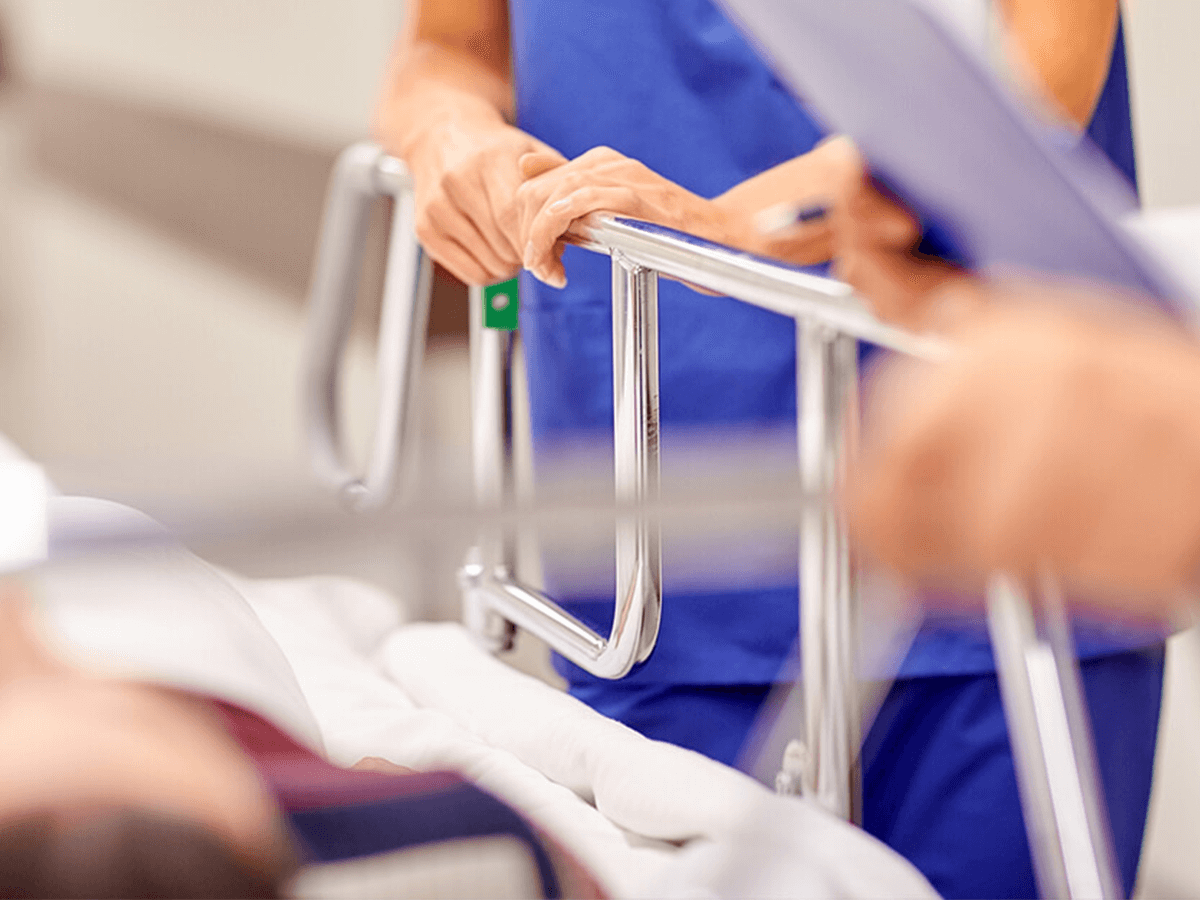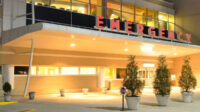Guest Post By G.M. MD, Emergency Medicine
The task that Emergency Medicine (EM) physicians face when preparing for the American Board of Emergency Medicine (ABEM) Qualifying Examination is somewhat peculiar. On the one hand, it is an opportunity offered at the pinnacle of their education and training; on the other hand, the significance of the exam causes so much stress for some that preparing for the exam includes finding ways to absorb that pressure in addition to countless hours studying
After graduating from residency in 2014, I successfully completed the exam during my initial eligibility period. When taking the exam for the first time, fresh out of residency, it is a capstone event. A decade later, the same exam ensures that EM knowledge is up to par, and regardless of how each physician actually practices medicine, they are aware of current standards of care and clinical policies as outlined by organizations such as the American College of Emergency Physicians (ACEP) and the American Academy of Emergency Medicine (AAEM).
In a nutshell, merely earning the chance to attempt the exam is an achievement in and of itself; however, don’t let that inflate your ego too much, or it will be a humbling experience. Here are some tips based on what I learned from preparing for the Emergency Medicine boards:
1. Don’t Overthink Questions
Just like any of the standardized tests you have taken in the past, the implications tied to the Qualifying Exam are of enormous magnitude. Becoming board certified is a big deal, and passing this exam unlocks the front door. Apart from securing a job and beginning the credentialing process, preparing for this exam should be a priority.
The pressure to pass on the first attempt, and qualify for the Oral Exam, causes many physicians to make the exam more complicated than ABEM intends. When they encounter a straightforward question, they tend to convince themselves they are overlooking something. The unfortunate consequence of this is doubting their instinct and underestimating their knowledge. Once this mindset becomes a habit, the cumulative effect can spoil what might have been a passing score.
Nowhere does ABEM list “to trick the examinee” as an objective of the exam. Instead, they focus on incorporating the core competencies of EM into 305 questions that present unique, although realistic, patient encounters. The reason many of these questions seem too easy to be true is because they are being answered by experts in the field.
The training that EM residency programs offer, in addition to the effort put forth studying, usually prepares physicians so well that it is difficult to write a question that truly stumps them. This means that answers will frequently seem obvious. That’s good! Go with that answer and move on!
Do not second guess yourself, or talk yourself out of an answer. It is one of the ultimate pitfalls, and honestly, you should know better by now. The exam can quickly be made much harder than it already is by overthinking and changing answers. Each question is its own challenge and bears no connection to others before or after it; therefore, each should be approached with a clear mind, uninfluenced by any other question.
Once you have decided on an answer, mark it on the answer sheet, and move on. If you don’t do this, then becoming preoccupied with a single question could have a snowball effect with undesirable consequences downstream.
2. First Aid and BoardVitals for the Emergency Medicine Boards are invaluable study guides.
There are countless resources available to help you prepare, and everyone has their own preference. Depending on your study habits, and your bank account, you can pick from the following options: review books, online video lectures, and live interactive courses which are usually held over a weekend in a popular city. If you retain information more effectively by listening to lectures, then one of the conferences or video lectures would be best.
On the other hand, one of the various review books would be more appropriate (and cheaper) for those that prefer reading as a means of studying. The biggest difference among the choices is price.
You can expect to pay at least a thousand dollars for one of the conferences which will most likely require travel and hotel expenses, in addition to the cost of the course. Whichever option you ultimately choose, First Aid and BoardVitals are resources you absolutely include.
These references are aimed at providing high-yield information on every topic in Emergency Medicine. Both the First Aid book and BoardVitals question bank are popular among residents as convenient references to study during their shifts. My biggest regret (along with others I have talked to) is not devoting more time to these resources.
After I finished the exam, I felt more uneasy and less confident about my score than I had on any previous exam. I panicked, and frantically tore through the closest resource I could find hoping that checking my answers would offer some reassurance. Every question I checked was incorrect, and this only added to my insecurities; however, in doing this, I discovered how much of a gold mine I had at my disposal with BoardVitals and First Aid.
When anyone asks me how I studied, I’ll tell them what I used, but now I recommend the following: purchase the First Aid book and combine it with the BoardVitals Emergency Medicine test questions for practice. Allow at least two months to process everything those sources have to offer, and keep your textbook of choice handy should you need to dig deeper on any topic. Anyone that commits to that plan, or similar, will be ready for anything the exam throws at them.
3. There are Often Multiple Correct Answer Choices
Knowing that selecting the correct answer often means the most correct answer is not a novel concept. This is something you have, undoubtedly, encountered on previous exams.
The question itself might be fairly simple, and the crux is being able to determine which is the preferred answer according to current guidelines and clinical policies. The first thing to do in this situation is make sure the question is not asking for “everything except,” or “all of the following are true except.” It’s easy to get in a hurry and overlook what the question is really asking; however, if not the case, and the question does seem to have several correct choices, do not panic!
This is a commonly used testing tactic, and it shouldn’t trip you up. It might be easy to narrow the choices down to only two, but then you begin pulling your hair out deciding which is more correct. If you can narrow the choices down to only two, and the correct answer is one of them, then you have improved your odds dramatically. This, like many other aspects of the exam, has real world applications.
For example, ABEM is interested in whether or not the physician can handle stressful situations in a timely, efficient manner, and can approach future tasks without carrying burden from a previously frustrating encounter. EM physicians see a large number of patients each day, and they must manage them simultaneously. It is crucial that the physician works efficiently, and doesn’t let emotions provoked by one patient influence how they treat a different patient. BoardVitals does a good job of presenting certain topics with enough detail to prepare for this type of question.
4. Break Up Your Study Time
This should also seem like common sense, but it’s amazing how inefficient some study habits can be. I can easily become distracted by the most irrelevant aspects of particular subjects. My background in biology and chemistry has shaped my brain to be most interested in the microscopic elements of diseases, but ABEM is more concerned about clinical applications and less about how well I know anything else.
In the past, once distracted, I would spend hours reading totally useless information that didn’t help me on the exam. Preparing for the Qualifying Exam was the only time I can remember distributing my time wisely. The ABEM website provides a breakdown of how each topic is represented on the exam. The most efficient strategy to use is allotting more time to topics most heavily represented, while the relatively less important topics should occupy less of your time. The percentages on the website should not be too surprising.
The most common reported chief complaints across the country are chest and abdominal pain, and these are represented the most. Trauma and resuscitation, the more critical topics, also make large contributions. ABEM expects all board-certified EM physicians to be capable of recognizing and managing life-threatening events from both medical and traumatic sources.
Even though this is a sensible way to create a study plan, it doesn’t mean you should neglect any of your weaker topics. If you happen to struggle with certain elements of cardiovascular disease, but are a trauma guru, then concentrate your efforts accordingly. The inequality among the different topics is a fair way to test a field as broad as Emergency Medicine, but it creates an exam heavily skewed toward resuscitation, trauma, and the cardiovascular system.
Another piece of advice I cannot overemphasize is to be prepared for pediatric resuscitation questions that involve children of all ages. The APLS/PALS algorithms should be as firmly ingrained in your brain as those from the adult world. It has also been my experience that pediatric questions are usually centered around a buzzword that you either know or you don’t know. Most study guides list these words, and knowing them will definitely be useful.
In the end, the overwhelming majority of your study time will be devoted to trauma, resuscitation, cardiovascular topics, and pediatrics. If your time is spent wisely, split between reviewing and answering practice questions, then you have set yourself up for success.
5. Take a Break after the Exam
Expect a roller coaster of emotions beginning as soon as you end the exam. You’ll let out a huge sigh of relief, and feel a sense of accomplishment that will put a smile on your face. As you are walking toward the exit of the building, the warming sense of euphoria slowly fades as it is replaced by the sobering thoughts of uncertainty.
We place so much importance on this exam that worrying about our score too much causes queasiness. The only remedy for this is occupying your mind with thoughts that lift your spirits, and doing something fun instead of dwelling on the exam.
Once it’s over, you no longer have control over the outcome. The worst things to do are sulk in the post-exam syndrome blues, and return to work the following day or even the same night. If there was ever a time you deserved a vacation, it’s now!
You have recently graduated from a demanding residency program, spent all of your free time studying and stressing, and maybe even experienced some stress while looking for a job, so there is absolutely no reason not to reward yourself. If you can plan something in advance, then you will have additional motivation to make it across the finish line, but even if you haven’t planned ahead, you should use your next days off to just get out of town.
Although no one necessarily looks forward to the ABEM Qualifying Exam, it occurs at a momentous point in your career, and is one you have been working toward for years. Emergency Medicine is your bread and butter, but the exam can be very difficult, and is far from a cakewalk. It’s a fair assessment of fundamental EM knowledge, and covers topics most relevant to the specialty.




